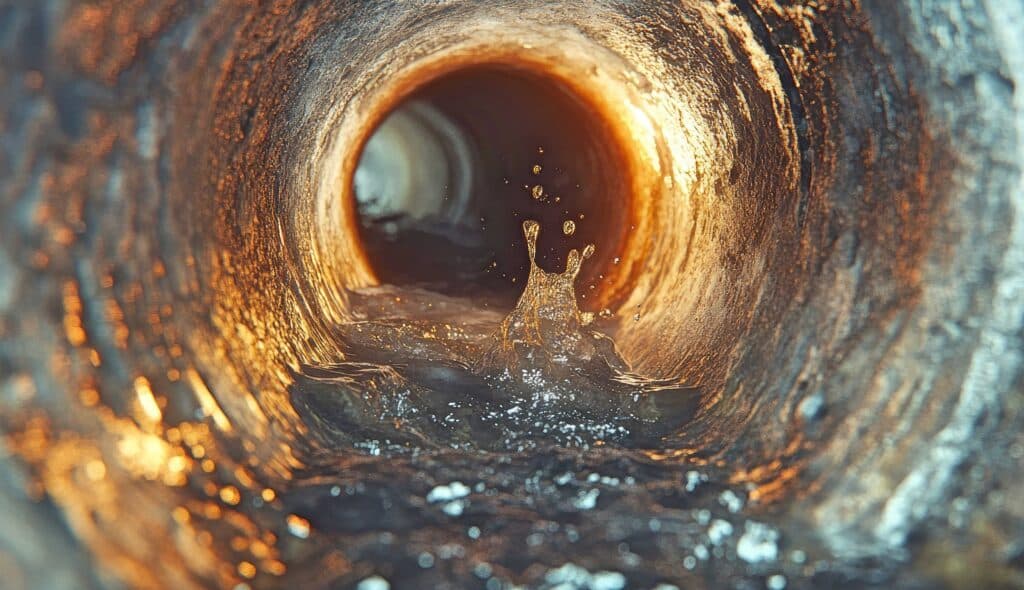Challenging Grease Trap Requirements for South Carolina Restaurant Owners
Opening a restaurant is full of challenges. Coming up with your menu. Hiring employees. Ordering equipment, etc.
But restaurant owners in a South Carolina city are increasingly facing significant hurdles that can delay openings and cost thousands of dollars due to the excessive size requirements for their grease trap installations.
Understanding the Role of Grease Traps
Grease traps play a crucial role in the restaurant industry. Installed beneath sinks, floors, or outside the premises, these devices are essential for preventing food fats, oils, and solids from entering the sewer system.
By separating grease from wastewater, they ensure clean water can flow freely without causing blockages in sewer lines. Properly functioning grease traps protect the city’s sewer infrastructure from costly and hazardous backups.
Challenges Facing Local Restaurant Owners
While understanding their necessity, many restaurant operators find themselves overwhelmed by the stringent and sometimes confusing grease trap regulations imposed by their local sewer utility.
It’s not uncommon for business openings to be significantly delayed as restaurant owners navigate requirements that often seem excessively strict compared to neighboring communities.
For instance, a local restaurant owner recently experienced over a year’s delay due to struggles finding adequate space for an excessively large grease trap.
The delays and back-and-forth negotiations with the local sewer utility resulted in additional expenses amounting to more than $100,000, draining valuable resources before the doors even opened.
Conditional Approvals and Ongoing Inspections
In response to concerns over sizing, the local sewer utility does offer conditional approvals, allowing restaurants to install smaller grease traps in exchange for agreeing to more frequent inspections.
While this can seem like a helpful compromise, the process itself often prolongs restaurant openings due to lengthy negotiations and bureaucratic red tape.
Restaurant owners have reported significant financial impacts, losing months of potential revenue as their businesses remain closed awaiting final approvals.
Inconsistent Standards and Frustration Among Operators
Restaurant owners have expressed frustration with the inconsistency in grease trap sizing guidelines. New establishments are often required to install very large grease traps—even when they take over locations previously operating with much smaller equipment.
This disparity raises questions about the fairness and logic behind such decisions, especially when existing establishments are permitted to operate with smaller, outdated traps.
These stringent requirements can seem particularly arbitrary when compared with standards in neighboring cities. Restaurant owners in nearby municipalities typically experience quicker, more tailored grease trap inspections, allowing them to move swiftly from planning to opening.
Economic Impact and Lost Opportunities
The economic impact on local restaurant owners can be make or break. Many businesses have reported losing significant portions of their opening budgets to grease trap-related expenses.
Additional costs arise from prolonged negotiations, required engineering adjustments, storage of furniture and equipment, and lost revenue from delayed openings.
Calls for Improved Processes and Communication
Local restaurant owners are advocating for clearer, more practical guidelines and improved communication from the local sewer utility.
While the utility acknowledges past issues and has made efforts to streamline processes and increase transparency, many business owners feel there is still substantial room for improvement.
Operators argue for more realistic initial guidelines, better staffing to expedite inspections, and greater flexibility in the installation options permitted by the utility.
These changes could significantly reduce delays and financial burdens on new businesses, helping to support rather than hinder their entry into the local economy.
Keep Food Solids Out Of Your Grease Trap With Our Strainer
If you want to keep your grease trap from getting clogged with food solids, The Drain Strainer™ captures food debris that either can be disposed of or kept for composting.
The Drain Strainer™ can help you avoid issues with what gets put down your 3 compartment sinks. No matter how much you focus on employee training, short cuts are always going to be taken and items are going to be put down your commercial garbage disposal that can harm it.
If you want to avoid issues with clogged grease traps or garbage grinders that are leaking or have burned out motors, The Drain Strainer™ is an effective and affordable commercial garbage disposal alternative that doesn’t require the use of water or electricity.
Ultimately, improved collaboration and communication between restaurant owners and the local sewer utility are essential to address ongoing challenges effectively.
By fostering a more supportive relationship, both parties can work toward practical solutions that protect the city’s infrastructure while enabling local restaurants to open promptly and succeed economically.
As restaurant owners continue to push for these reforms, the community at large stands to benefit from thriving local businesses, strengthened infrastructure, and a more vibrant local economy.
The sewer utility is faced with an EPA mandate to keep their drinking water clean, but whether the best way to achieve is with bigger grease traps or allow smaller grease traps that are cleaned more frequently is open for debate.
Invented by a former restaurant owner, The Drain Strainer™ can eliminate issues with mangled silverware or dangers from employees putting their hands down the commercial garbage disposal trying to clear out a clog.
Click here to find out more about how our food scrap collector can keep your grease trap free from clogs.
Let The Drain Strainer™ keep your 3 compartment sinks running smoothly by capturing food solids and avoiding any drain problems.

